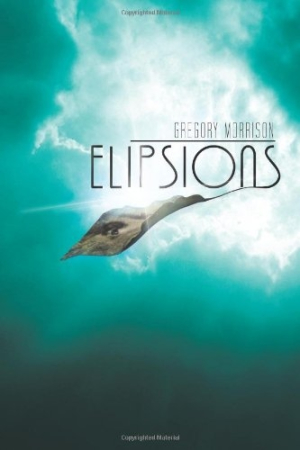Elipsions
Caleb, Elise, Aubrey, and Derrick—young adults with troubled pasts—find themselves drawn together by mystical dreams and encounters. With Caleb’s health deteriorating from his visions, the four struggle to find out why they have been brought together, how to control newfound powers, and how to save Caleb before his nightmares kill him. This is the promising premise of Gregory Morrison’s debut novel, Elipsions.
The story starts off with intensity as Caleb grieves over his mother’s death from brain cancer and begins to have dreams from which he always awakens just before meeting his demise. Unable to discuss things with his father, who is wallowing in his own grief, Caleb turns to his dear uncle Seth for help. He convinces his uncle that his dreams are real and that he must connect with Elise, who is on the run from an abusive stepfather who wants to institutionalize her. In Caleb’s peaceful dreams, he meets Aubrey, and he quickly falls in love with this person who can heal his wounds. Derrick is the last of the main characters to be introduced. He has been taught to trust no one outside of his classmates at a black supremacist high school, but he comes to think differently when he finds out he is slated to support his African-American teacher in a plot to destroy Caucasians.
Caleb is the most well-developed character of the four: readers mourn the loss of his mom and admire the bond between him and his supportive uncle. Morrison excels in describing the torments inflicted upon the young man in his nightmares. The author makes the audience care so much about the teen and his family that it comes as a shock when Caleb must venture out on his own.
Morrison puts less and less effort into developing the characters who will become Caleb’s allies. By the time Aubrey joins the group, the whole thing feels rushed. The quartet does not even uncover the evil plot of Derrick’s teacher until more than halfway through the novel. And it is really unfortunate that the teacher’s plan is based on a stereotype—the angry African-American man seeking revenge on Caucasian oppressors.
In addition, key story elements feel truncated: the teens develop their powers in fits and spurts, and explanations are given after the fact instead of being appropriately foreshadowed. For example, Elise, who has been jealous of Caleb and Aubrey for a long time, suddenly realizes that the couple was meant to be together. And the fact that Derrick agrees to assist the group seems out of character. It is surprising to see him join them with such alacrity, given his longstanding training to regard others as enemies.
Finally, the narrative is confusing; it often switches between first person and third person, and the dialog veers from stilted to slang-laced with dizzying speed. Had Morrison spent as much time on the rest of the story as he did in fleshing out Caleb, the narrative would be better paced and make more sense.
The end of the book promises the story will continue. One hopes the sequel will iron out some of these issues and give these characters room to grow at a proper pace.
Reviewed by
Jill Allen
Disclosure: This article is not an endorsement, but a review. The publisher of this book provided free copies of the book and paid a small fee to have their book reviewed by a professional reviewer. Foreword Reviews and Clarion Reviews make no guarantee that the publisher will receive a positive review. Foreword Magazine, Inc. is disclosing this in accordance with the Federal Trade Commission’s 16 CFR, Part 255.


